November 3rd History Lesson
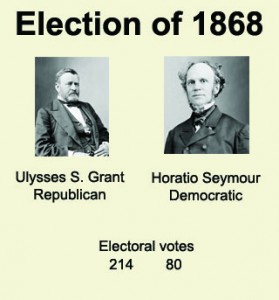
1868 – Ulysses Grant became the 18th President of the United States by trouncing former New York Gov. Horatio Seymour (214-80 electoral votes).
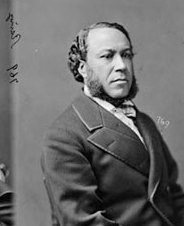
1868 – John Willis Menard was the first African American elected to the United States Congress. Because of an electoral challenge, he was never seated.
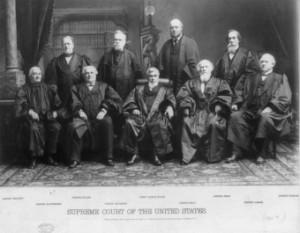
1883 – The U.S. Supreme Court ruled that a Native American (or in their terms, an Indian) was by birth “an alien and a dependent.”
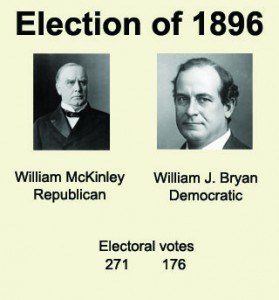
1896 – William McKinley defeated William Jennings Bryan (271-176 electoral votes) to become the 25th U.S. president. McKinley would defeat Bryan again in 1900.
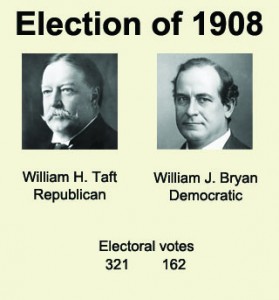
1908 – William Howard Taft was elected as the 27th president (321-162 electoral votes) over William Jennings Bryan. It was Bryan’s third loss as the Democratic candidate.
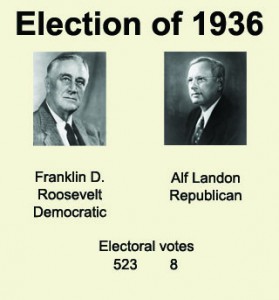
1936 – President Franklin D. Roosevelt won a landslide victory over Kansas Gov. Alfred M Landon. It didn’t help Landon’s cause that in the two months after his nomination he made no campaign appearances.
As columnist Westbrook_Pegler lampooned, “Considerable mystery surrounds the disappearance of Alfred M. Landon of Topeka, Kansas…. The Missing Persons Bureau has sent out an alarm bulletin bearing Mr. Landon’s photograph and other particulars, and anyone having information of his whereabouts is asked to communicate direct with the Republican National Committee.”
Landon carried only Maine and Vermont for a total of 8 electoral votes to Roosevelt’s 523. The overwhelming Roosevelt victory prompted James Farley to joke, “As Maine goes, so goes Vermont.”
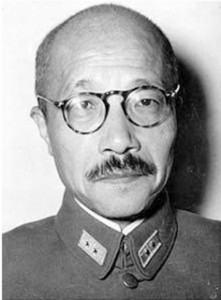
1941 – The Combine Japanese Fleet received Top-Secret Order No. 1: In 34 days time, Pearl Harbor was to be bombed, along with the Dutch East Indies and the Philippines.
In September 1941, President Franklin Roosevelt had issued a statement, drafted by British Prime Minister Winston Churchill, threatening war between the United States and Japan should the Japanese encroach on territory in Southeast Asia or the South Pacific.
Hideki Tojo, the minister of war who would soon be prime minister, construed the American “threat” of war as an ultimatum and delivered the order to all pertinent Fleet commanders that not only the United States – and its protectorate the Philippines – but British and Dutch colonies in the Pacific were to be attacked. War was going to be declared on the West.
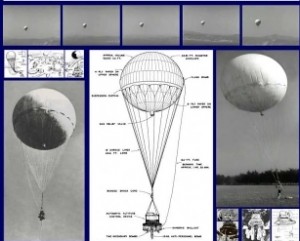
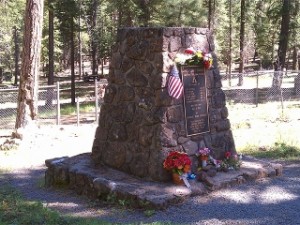
1944 –The first balloon bombs, intended to be the silent assassins of World War II, were launched by Japan. The balloons, with incendiaries attached, were buoyed across the Pacific Ocean by a jet stream. It took between 30 and 60 hours for a balloon bomb to reach North America’s West Coast. Records discovered after the war indicated more than 9,000 hydrogen balloons were launched until April 1945. Fewer than 300 of the balloons reached the U.S. mainland.
The U.S. military did not make American citizens aware of the danger (the American press cooperated with the federal government and did not report the balloons) and as a result, a single balloon did achieve its goal. On May 5, 1945, five children and local pastor Archie Mitchell’s pregnant wife Elsie were killed as they played with the large paper balloon they’d spotted during a Sunday outing in the woods near Bly, Oregon – the only enemy-inflicted casualties on the U.S. mainland in the whole of World War II.
Shrapnel Tree, the pine behind the monument – where Mrs. Mitchell and the five children died – still bears the scars of the shrapnel from the deadly weapon and stands as a silent witness to the tragedy.
Tragic Postscript: In May 1962, Rev. Mitchell was seized by the Viet Cong near Buon Ea Na, Vietnam – where he was serving as a missionary working at a facility for treating lepers – and was never seen again.
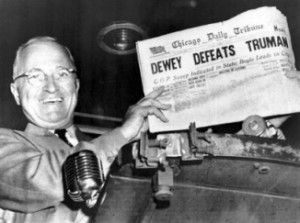
1948 – The Chicago Tribune jumped the gun and mistakenly declared Governor Thomas Dewey the winner of his presidential race with incumbent Harry S. Truman in a front-page headline: “Dewey Defeats Truman.”
In a now famous photograph snapped in the early morning hours after the Nov. 2 election, a beaming and bemused Truman is shown holding aloft the Chicago Tribune issue that had wrongly predicted his political downfall. Truman defeated Dewey by 114 electoral votes.
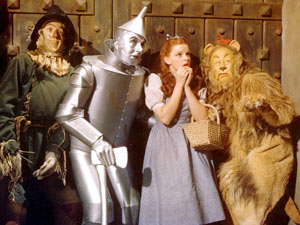
1956 – The last telecast of Ford Star Jubilee – an American anthology series that aired once a month on Saturday nights on CBS – was really something special. It was the first airing of what later became a television tradition — Judy Garland’s classic 1939 film The Wizard of Oz, with Judy’s 10-year-old daughter Liza Minnelli and Bert Lahr (the Cowardly Lion from the film) on hand to introduce it.
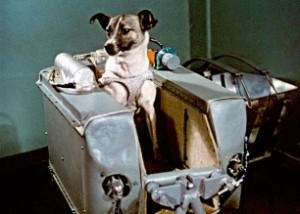
1957 – The Soviet Union launched the first animal into space – a dog name Laika – aboard the Sputnik 2 spacecraft. Laika, part Siberian husky, survived for several days as a passenger in the USSR’s second artificial Earth satellite. Electrodes attached to her body provided scientists on the ground with important information about the biological effects of space travel. She died after the batteries of her life-support system ran down.
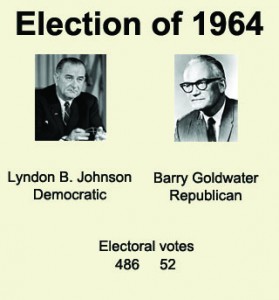
1964 – In one of the most crushing victories in the history of U.S., incumbent Lyndon Baines Johnson defeated Republican challenger Barry Goldwater, Sr.
During the campaign, Johnson did all he could to portray Goldwater as a saber-rattling warmonger, who would bring the world to nuclear annihilation if elected. The President portrayed himself as a model of statesman-like restraint, a man who would not send “American boys nine or ten thousand miles from home to do what Asian boys ought to be doing for themselves.”
Johnson’s statement satisfied many Americans, but any commitment he may have had about avoiding direct U.S. involvement in the Vietnam conflict was already eroding by the time of the 1964 election. Four months after his victory, Johnson committed U.S. combat troops to Vietnam.
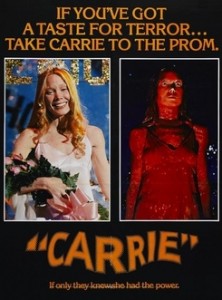
1976 – Carrie, a horror film starring Sissy Spacek and based on Stephen King’s 1974 best-selling first novel, opened in theaters around the United States.
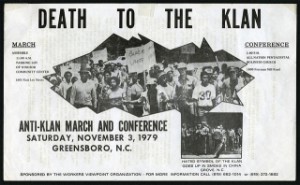
1979 – Five members of the Communist Workers Party, participating in a “Death To The Klan” rally in Greensboro, North Carolina, were shot to death by a group of Klansmen and neo-Nazis. Seven others were wounded.
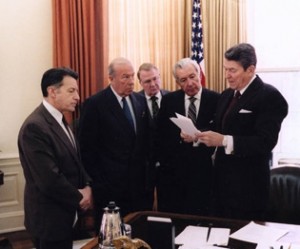
1986 – The Lebanese magazine Ash Shiraa reported that the United States had been secretly selling arms to Iran in an effort to secure the release of seven American hostages held by pro-Iranian groups in Lebanon. The revelation came as a shock to officials outside President Ronald Reagan’s inner circle and went against the stated policy of the administration. In addition to violating the U.S. arms embargo against Iran, the arms sales contradicted President Reagan’s vow never to negotiate with terrorists.
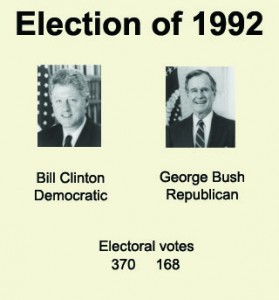
1992 – Arkansas Governor Bill Clinton (and running-mate Al Gore) defeated President George Bush and VP Dan Quayle (370-168 electoral votes) to win the U.S. presidential election.
The campaign was notable for the campaign of billionaire H. Ross Perot, who ran as an Independent. Perot proved a very popular candidate, winning nearly 20 million votes, but failed to win a singe electoral vote.
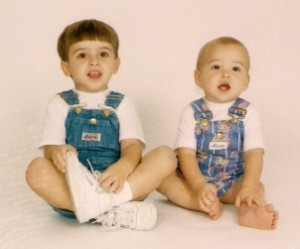
1994 – Hours after appearing on CBS This Morning to make a public plea for the safe return of her two sons – she claimed they had been carjacked on October 25 by a black man – Susan Smith met with Sheriff Howard Wells and confessed that she had pushed her car into John D. Long Lake (Union County, SC), drowning the boys inside. She said she had wanted to kill herself and her children, but in the end, she got out of the car and sent her boys to their deaths.
Tragic Postscript: In 1996, a family and friends visiting the spot where Smith drowned her two little boys met with tragedy themselves when their vehicle rolled into John D. Long Lake. Three adults and four children drowned.
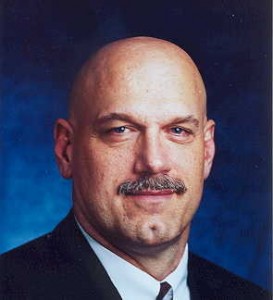
1998 – Former professional wrestler Jesse “The Body” Ventura was elected governor of Minnesota with 37 percent of the vote. His opponents, seasoned politicians Hubert Humphrey III (son of Lyndon Johnson’s vice-president and the attorney general of Minnesota) and St. Paul mayor Norm Coleman, spent a total of $4.3 million on their campaigns. Ventura, the Reform-Party candidate, spent $250,000 – money he raised by selling $22 t-shirts and accepting $50 donations from his supporters.
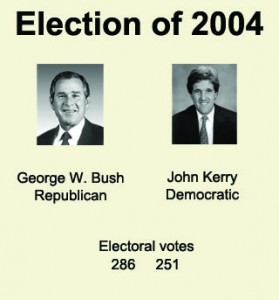
2004 – Massachusetts Senator John Kerry conceded defeat in his U.S. presidential campaign against President George W Bush. The election – which had taken place the day before – saw Bush win 50.7% of the popular vote and 286 electoral votes against John Kerry’s 251. One Electoral College voter from Minnesota cast his vote for John Edwards, who was Kerry’s running mate.
Compiled by Ray Lemire ©2014 RayLemire.com. All Rights Reserved.You may not, under any circumstances, reproduce, record, publish, republish, post, transmit, publicly display, publicly exhibit or distribute any articles or photographs on RayLemire.com without obtaining the express written consent of the Operator.